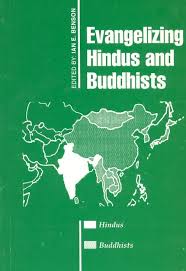
Zen Buddhism
This movement developed in China and Japan. It has no special doctrines that its practitioners must be believe. Rather it emphasizes techniques of concentrated meditation through which the devotees aim to achieve enlightenment. An important exercise is to meditate on riddles called koans which seem meaningless to those outside Buddhism.
Some Buddhists teach that one day an “exalted one” would come who would be a type of Buddha, but even more powerful. This “Exalted Buddha” would proclaim the truth. He would have more disciples than Buddha, and would be full of wisdom and goodness. He would come to restore mandkind when the earth was full of evil, and when everyone had turned from the law. These prophecies appear in the “Mahavastu” and the “Lotus Sutra”, which are Buddhist scriptures. This coming teacher is know as the “Maitreya” in India, as “Mi Lo-Fu” by Chinese, and “Miroku” in Japan, and many people are waiting for him. In Thailand and Cambodia, some missionaries have used these prophecies as a bridge for some Buddhists to believe in the Lord Jesus Christ. This is not to say that God inspired these prophecies. They may be inspired by Ancient Nestorian Christian missionaries. They do, however, express hopes of a redeemer that can only be fulfilled in the Lord Jesus.
Evangelizing Buddhists
The following elements are important:
- Spiritual preparation through holy living and prayer (often with fasting) to bind the evil spirits and see breakthroughs. Repentance and Bible study keep us near to God. We put on the armour of God each day to overcome the subtle temptations to anger, depression and impurity (Eph. 6: 10-18). In prayer, praise God that our Lord Jesus won the victory over Satan and everything that would prevent people from receiving the Gospel (Col. 2: 14,15). Pray for divine revelation so that Buddhists realize that their religion is false, and that they accept the truth about God and believe in the Lord Jesus (Eph. 1:17-18). Because of the demonic element, those working among Buddhists must be careful to have repented from all sins, especially any previous occult practices (even those done in jest).
- A culturally sensitive lifestyle – including following local courtesies, kindness to animal, not talking to much or too loudly, respect for elders, handling Scriptures with care, reverential postures in prayer, a simple lifestyle, keeping emotions in check, etc.
- Learning the people’s mother tongue. There will usually be a national language before arriving. The local language is best learnt on the spot. (For help in this task, see the booklet How to Learn Another Language – Booklet 6 in this series, available from the Missionary Training service – see page 2 for the address.) Knowing the heart language and Buddhist terminology will help you explain the Gospel accurately.
- Making friends, getting to know the people, their ways, ceremonies, and beliefs. As far as possible, adopt local ways, food and clothing. Try to think like the local people. Focus on one people group at a time and seek to begin a movement of the entire group towards the Lord Jesus Christ.
- Patient and persevering explanation of the truth of God to many people, but concentrate on whole families of those seeking the Truth. When they realize that God is a Personal Being, to whom they are morally accountable, they may turn from their idols and seek forgiveness of sins through the Lord Jesus Christ. Before they can appreciate the plan of salvation through the Lord Jesus, they must understand:
- that God is loving, personal Being. Creator of all things, who is etenal, holy, and just (Buddhists will probably have none of these ideas about God: they may think that God does not exist, or believe in many gods, or think that the word refers to Buddha, his teaching and the body of monks).
- that men and women were made in His image to have a special relationship with Him.
- that we have broken this relationship through our disobedience – sin is an act that offends a holy and loving God. (For Buddhist sin affects nobody but the sinner – it has no connection with offending God – it is a bad act which accumulates more karma – good deeds bring merit (good karma) that is store up a treasure which will bring a better rebirth, and bad deeds bring demerit (bad karma) which will cause a worse rebirth. For some Buddhists their main idea of sin may be the killing of animals). We must pray that God brings true conviction of sin.
- that God’s justice means a once for all eternal judgement on all men. The Lord Jesus often warned people of God’s final judgement – many parables show that those who did not recognize Him or demonstrate their faith through obedience would be eternally condemned (Buddhists think that there is an endless round of deaths and rebirths of their impersonal life force)
- that love and compassion mean being involved in the needs of real people in the real world – like the “Good Samaritan” in Luke 10. (Buddhists may think of compassion as a mental attitude hoping to end others’ suffering through meditation. They may think that God’s love in giving Himself for us was a weakness.)
- that prayer is a spiritual communion between God our Father and His children (Buddhists may think of it as a repetition of magic phrases that are difficult to understand).
- that the Lord Jesus Christ became a real person who really appeared in history (Buddhists might think that incarnation refers to the temporary apparition of a spirit).
- that salvation is the reconciliation between God and men and women through the Lord Jesus who died for us on the cross and who rose again from the dead. (Buddhists rely on their own efforts to achieve salvation.) His merit is transferred to those who believe in Him and follow Him.
We must always explain what our religious words mean. Otherwise Buddhists will completely misunderstand us.
Use Bible stories to build up a true understanding of God and the Gospel of the Lord Jesus Christ. Stories are usually more helpful than philosophical arguments to help Buddhists understand the truth.
For example:
- The creation,
- Adam’s sin against God
- The flood
- The call of Abraham,
- The plagues,
- Passover and escape from the Egypt,
- Receiving the law
- Elijah and the prophets of Baal on Carmel.
- Your selection would also include some of the Lord Jesus’ miracle, parables (many Buddhists love stories), His trial, death and resurrection.
- You might add other events such as the Lord’s birth, baptism, temptation, examples of His teaching, healing of the Gerasense demoniac, the parable of the prodigal son, the Lord’s transfiguration, His ascension, the coming of the Holy Spirit at Pentecost, and the conversion and baptism of Saul.
IAN E. BENSON
 Hướng Đi Ministries
Hướng Đi Ministries






